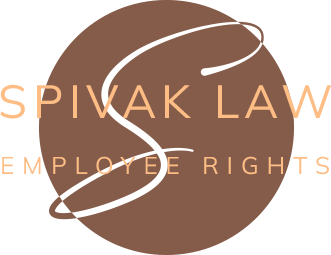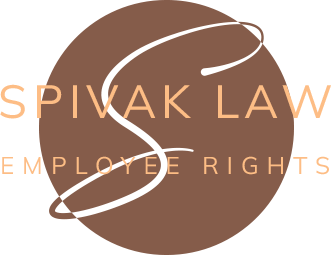The Huffington Post reported on April 6, 2013 that California State Attorney General Kamala Harris accepted President Barack Obama's apology for referring to her as "by far the best-looking attorney general." Commentators have characterized what some may view as an innocent "compliment" of a long-time "friend" as sexist, yet did the President's comment rise to the level f a sexually hostile work environment? Of course net. However, here are some considerations on the subject of sexual harassment that this incident brings to mind.
The California Fair Employment and Housing Act (FEHA)
defines sexual harassment as harassment
based on sex or of a sexual nature; gender
harassment; and harassment based on pregnancy, childbirth, or related medical conditions.
The definition of sexual harassment includes
many forms of offensive behavior, including
harassment of a person of the same gender
as the harasser. The following is a partial list of
types of sexual harassment:
• Unwanted sexual advances
• Offering employment benefits in
exchange for sexual favors
• Actual or threatened retaliation
• Leering; making sexual gestures; or
displaying sexually suggestive objects,
pictures, cartoons, or posters
• Making or using derogatory comments,
epithets, slurs, or jokes
• Sexual comments including graphic comments about an individual’s body; sexually degrading words used to describe an
individual; or suggestive or obscene letters,
notes, or invitations
• Physical touching or assault, as well as
impeding or blocking movements
Can compliments be "harassing?" Even well-intentioned compliments by coworkers or supervisors may rise to sexual harassment if a reasonable victim of the same sex as the plaintiff would consider the comments sufficiently severe or pervasive to alter a condition of employment and create an abusive working environment, applicable cases say. Friends can say things to each other that may be viewed as harassment between strangers. If the friends make such comments to each other regularly, they in essence consent to the comments. Under California and federal law, consent generally inhibits a claim of sexual harassment.
The context of the comment must also be taken into consideration. The President was speaking to guests at a fund-raiser. This may or may not be considered the workplace or a professional setting under State employment laws that do not forbid conduct in private settings that take place outside of the workplace. However, sexual misconduct that takes place outside of the workplace may be illegal sexual harassment for a which an employer can be held liable if the employer had control over or sanctioned the situation.
Mr. Obama's comment was made in the presence of many other people. Had the comment been offensive, it could become all the more embarrassing based on a large number witnesses hearing it, especially because the target of the comment, Ms. Harris, was present as well.
Was the comment based on Ms. Harris's gender? This blogger doubts that the President ever referred to Mitt Romney as "by far my best-looking opponent in the presidential race" or Joe Biden as "by far the best-looking vice president." If the President would not have made such a comment to a man in a similar setting, the gender of the comment's subject may have been the reason for the comment.
Even if Ms. Harris found this comment to be inappropriate (highly likely, since the President offered her an apology for it), it is unlikely that a comment such as this could form the basis of a sexual harassment claim by itself. Also, the employee would be unlikely to have any damages to justify a court action. Isolated comments such as these do not rise to the level of a sexually hostile environment, even though they may create a sexually hostile work environment when combined with sexually driven conduct in the workplace.
Do other Attorneys General have reason to be concerned. Probably not, since the President doesn't employ or supervise them. However, in California, an employee may bring a cause of action for sexual harassment against her employer for its failure to prevent sexual harassment by customers, vendors, agents and other third parties if the employer knew or should have been aware of the harassment and failed to take appropriate corrective action. An employee, on the other hand, may bring a claim for sexual discrimination in California if she can prove that a supervisor selected a coworker for special treatment because of the supervisor's sexual attraction or relationship with the coworker, so a California case states.
In view of these considerations, it may be wise to keep certain compliments to oneself. Just sayin', Mr. President.

